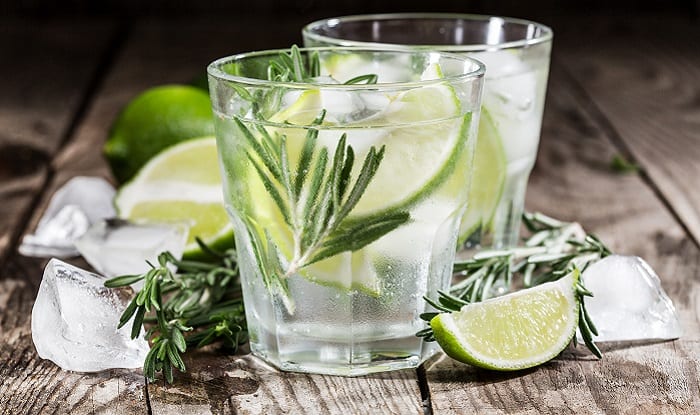
By clicking “Accept All Cookies”, you agree to the storing of cookies on your device to enhance site navigation, analyze site usage, and assist in our marketing efforts Cookies Policy.

The gin and tonic might be the simplest cocktail to prepare, but it has a whole lot of history behind its invention. Alcoholics around the world swear by this humble alcoholic drink that doesn’t require fancy mixing skills to be prepared. All that goes into making a satisfying glass of the gin and tonic includes a glass, some gin, some tonic water, a lime wedge and a stirrer. Just mix everything together and voila! your drink is ready. However, the origin story of the drink is far from simple and is in fact, deeply related to the medicinal advancements of the age and also of the expansion of the British empire into the Indian subcontinent and around.
The gin and tonic was a drink that was invented as a ploy to get British soldiers and officials of the East India Company residing in the subcontinent, to take their quinine, that would help them fight malaria that was considered a deadly disease back then. So what is now a recreational drink for us, was in fact the very invention that the British Raj, (or at least the men of the Raj) thrived on. But how did it get invented? Both the gin and the tonic water have very different origin stories, both in terms of the geographical location and the reason for invention. The only thing that links both is the English people. ALSO READ: Long Island Iced Tea: The fascinating story behind the invention of this sneaky cocktail
Gin is derived from the Flemish word genever. The drink was discovered by English soldiers while fighting in Holland in the 1580s during the Dutch War of Independence. The English had nicknamed it ‘the Dutch Courage’, but that name didn’t stick and gin caught on better. But that is just one school of thought. Another school of thought traces the drink to a Dutch physician named Sylvius de Bouve. It’s believed that Bouve discovered a highly-alcoholic medicinal concoction called jenever that could improve circulation and cure other ailments as well. It’s possible that Bouve’s invention had found favour with the English soldiers in Holland, who them took credit of its origin and brought it to England as well. ALSO READ: 10 DIY cocktails for a boozy romantic Valentine’s date night
Whatever the case, the English masses took to the drink extremely well. It started to be produced within the country at an extremely low cost and gin consumption boomed in the first half of the eighteenth century. In fact, the drink came to be consumed in Britain so much that the Parliament had to pass a law imposing a tax on the drink. In 1743, riots had erupted in response to the hike in cost of gin.
One of the key ingredients of the tonic water is quinine that is an anti-malarial alkaloid extracted from the bark of the cinchona tree. Quinine was being used in treating shivers during the common cold. But how did tonic water started being added to the mist widely preferred alcoholic drink of the English- the gin? This fusion took place in India during the time of the British dominance in the subcontinent. In the late 1850s, when India had become a colony of the British, there was a sudden influx of a large number of Brits who migrated here to serve the Crown, often with their families. ALSO READ: How to make mulled wine, spiked monk’s coffee & Blue Blazer cocktails at home
Once the English began settling here, they obviously also brought with them their favourite alcoholic drink, the gin. Soon a lot of them started being infected with malaria, and it created a huge health concern, especially for the soldiers. However, a lot of them were reluctant to take the quinine necessary to fight the disease, because of its incredibly bitter taste. It sounds extreme now, but a lot of English soldiers, in fact chose to die of malaria than take the quinine. That is where gin entered the picture. The drink began being added to tonic water to remedy the bitterness. ALSO READ: Best Pubs in Mumbai for Single Women
In fact, quinine played a huge part in the European power’s global dominance. By manufacturing tonic water and supplying it to their colonies prone to malarial fever and other ailments, they could ensure their administration of the colonies stayed intact. So there you have it! The seemingly simple gin and tonic has had quite a journey to become one of the most popular classic cocktails in the world. Think about that the next time you sit down to enjoy a glass of the stiff drink.
Found this story interesting? Like our Facebook page to read more such articles. Also, share your comments below. We would love to hear from you!A
For breaking news and live news updates, like us on Facebook or follow us on Twitter and Instagram. Read more on Latest Lifestyle News on India.com.